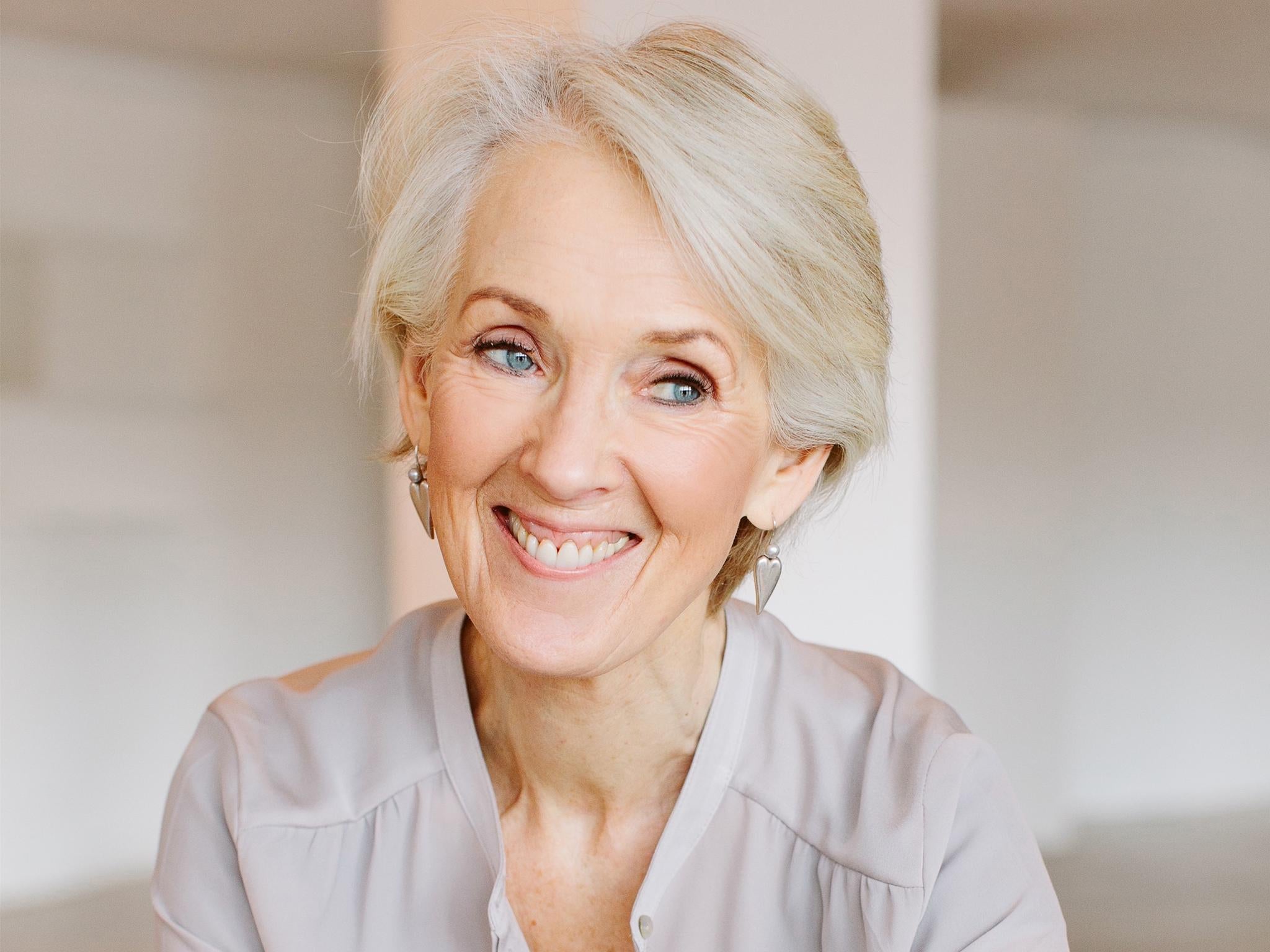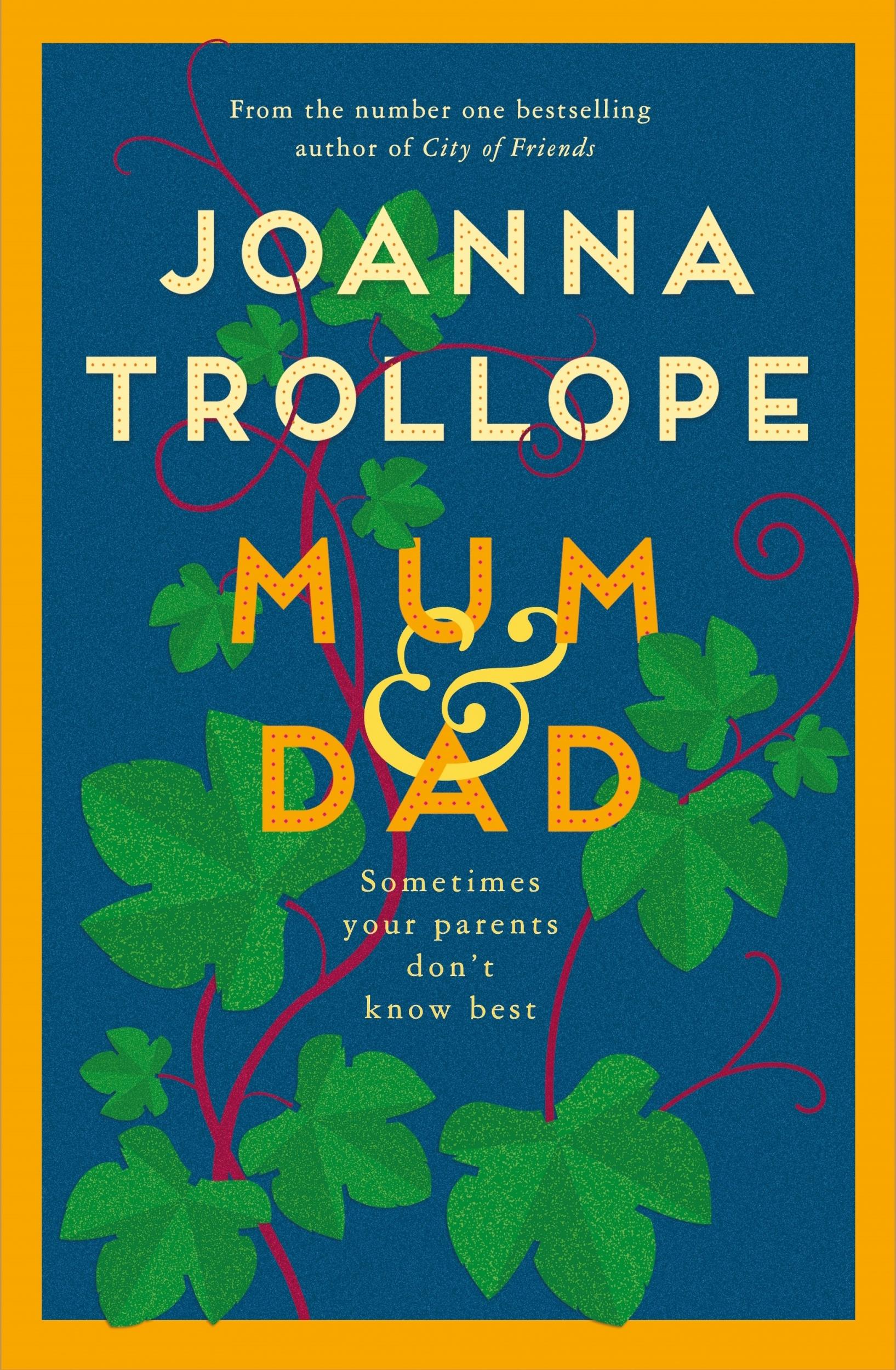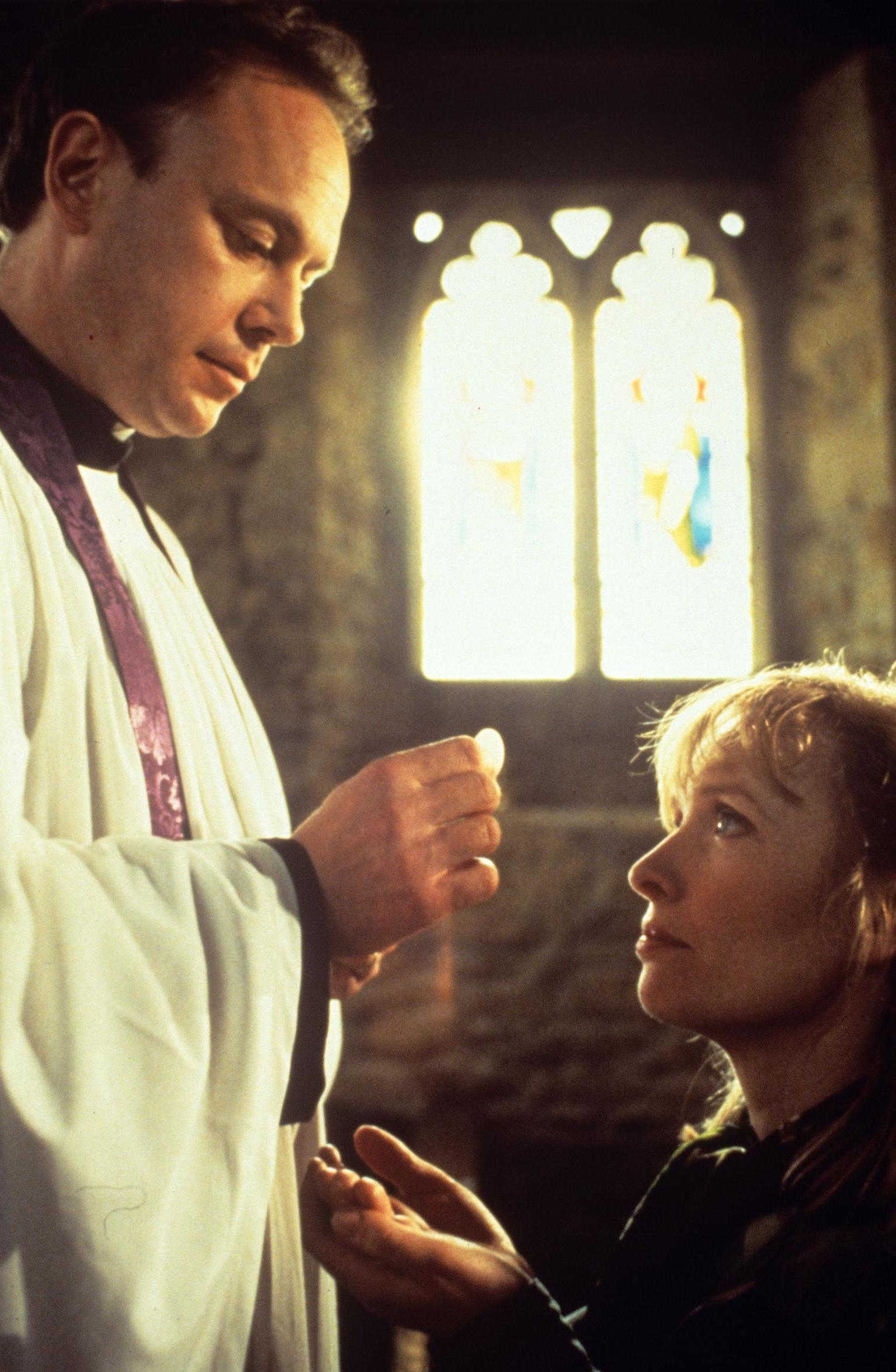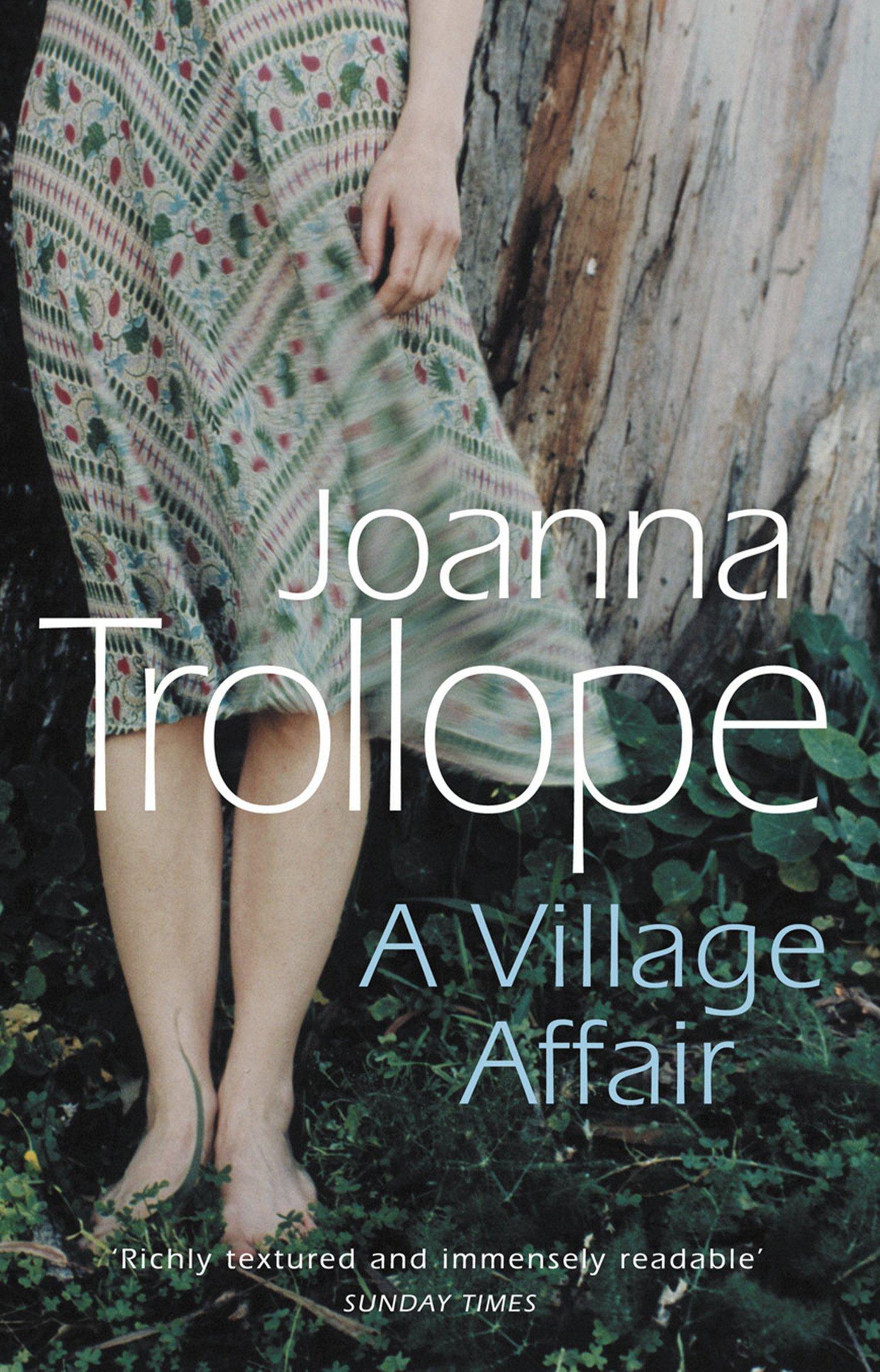Joanna Trollope: ‘I’m a big fan of assisted suicide – it’s not staying alive, it’s having quality of life’
The author, once wrongly dubbed the Queen of the Aga saga, is still going strong with her 22nd contemporary novel ‘Mum & Dad’, out this week. She talks to Charlotte Cripps


When other writers say, ‘Oh, I can’t wait to get to my desk,’ I think, ‘What is the matter with you?’” says Joanna Trollope in a cut-glass accent. She may have sold more than 3 million books, but writing is still a painful process.
“You have got nothing,” she continues. “No paints or a piano to help your creativity; just you and the inside of your own head. I used to write off the top of a full tank. I was longing to write – I was longing to communicate and say to people, ‘You aren’t alone if you feel betrayed or jealous, or when you’ve been dumped for the first time.’ And now, I suppose, I’m very much older. Obviously, there is still masses of fuel there to go, but it’s not quite the eagerness I felt 50 years ago. I have to make myself do it.”
Sitting perfectly poised at a table in the Royal Court cafe, and looking so youthful for a 76-year-old that you can only hope she’s had work, Trollope is here to promote her 22nd contemporary novel, Mum & Dad. It was a short walk here from her home in Chelsea, and she’s easy to spot from a mile off: stick-thin, with high, pinched cheekbones and immaculately coiffured hair. She gets recognised quite a bit – especially around here, “in SW10, 3 and 7”, she says, the postcodes rolling off her tongue. “But you know, I’m thinking of loo paper and washing powder in places like Tesco, and so I am always startled when people come up to me and say, ‘I love your books’. I think it’s very touching.”
Trollope has been a household name ever since her first number one bestseller The Rector’s Wife – about a rebellious priest’s wife – knocked Jeffrey Archer off the top spot in 1991. She’s having difficulty totting up how many books she’s had published over the years. The answer’s 32 – including a string of historical romances written under the pen name Caroline Harvey.

As fellow novelist Fay Weldon once remarked, Trollope has a “gift for putting her finger on the problem of the times”. So it is with her latest novel, Mum & Dad, out on 5 March – “a modern handbook” for how to deal with elderly parents, says Trollope, written for the “sandwich generation”, who are typically in their thirties or forties and also bringing up children.
Her writing – which flits between flashes of insight and the more quotidian descriptions of family life – is a wonderful escape, this time to rural southern Spain. The now ageing parents Monica and Gus have fled there from the UK to start a new life, running a vineyard on the slopes of a mountain near Ronda. It’s not quite as romantic as that sounds – Monica is out of the game as far as sex is concerned (“Sex. The mere idea of it was now as distant to her as the moon.”) – but hats off to them for following their dreams.
Then again, what happens when they get ill? When Gus has a stroke, the members of the immediate family left in London (three grown-up children and their other halves) go into meltdown. One of the teenage grandchildren is self-harming (“Not drugs... Cutting.”), which surely must take priority over the elderly parents in crisis? Who knows? The big catastrophe is not that Gus can’t talk properly, but that he can’t drive anymore, thus sentencing his wife to a shackled existence of ferrying her bad-tempered husband around the place.
Alongside plenty of “putting the kettle on” and “making a cup of tea” moments, there are fiercely astute observations, in which Trollope cuts to the quick of family tensions and relationships as if she’s been spying on your own. She writes across the generations fluently, even if at times, her language feels old-fashioned. Teenager Daisy no longer wears a school uniform, writes Trollope, but is “imprisoned instead by the modern demands of makeup and clothing”.
Trollope, who speaks in a slow and knowing way, says she would “loathe” her children to look after her if she was ill. “I’m a big fan of assisted suicide,” she says. “It’s not staying alive that I think is a great achievement, it is having quality of life while you are alive.” She would like all of her books “to be curated as guidebooks for life”. That’s why when a book is done, rather than sell the original manuscript for “hundreds of thousands of pounds to America”, she donates it to the Bodleian Library at Oxford University, where she studied in the early 1960s at a time when “there was one woman for every seven men”.
“You learn more from reading fiction than you will learn from anything else in life except living it,” she says.
Trollope’s novels have had a cosy reputation as middle-brow, rural, domestic fiction since she was crowned Queen of the “Aga saga” early on in her career – a term coined by English author Terence Blacker in 1992 and one which she rightly found “patronising”. It was “idle journalism” that gave the phrase its shelf life, says Trollope, as every tabloid interview regurgitated it for years. She adds with a disapproving look: “Needless to say it was created by a man.”
Trollope’s books deal with some gritty issues, such as the anguish of adoption in Brother and Sister (2004), a lesbian scandal in The Village Affair (1989), and career women who will do anything to avoid “tea, bath, bed” with the kids at home in City of Friends (2017). She covers divorce, empty-nest syndrome, bereavement, stepchildren, sibling rivalry, affairs, motherhood, betrayal and self-harm. No wonder the Aga Saga label didn’t stick.
How does Trollope keep relevant in today’s fast-moving world? Having two daughters and two stepsons in their forties and fifties, and nine grandchildren ranging from 11 to 21, helps. She’s been married twice, divorced twice, has dated a man 25 years younger than herself and now has settled into single life.
“The books shift position as society shifts its viewpoint”, she says. “But my female characters have always been very keen on rowing their own boats and fighting their own battles.”
Is there a message in her novels? “You know if you are stuck with the washing-up,” she says, using the task as a metaphor for being stuck with yourself, “you are not alone. You are the only person you are stuck with, so why don’t you concentrate on making yourself the most fascinating companion?” The message would have been quite different when she was writing The Rector’s Wife 29 years ago. “It was a much cruder form of independence; having your own money and life outside of the home.”

Trollope, who has been awarded a CBE for services to literature, was born in her grandfather’s Cotswold rectory in 1943 and grew up with her two young siblings in Reigate, Surrey. Her father, Arthur, who was away in India on war service when Trollope was born, was of the same family as the Victorian novelist Anthony Trollope. Her mother, Rosemary, was an artist and writer. By the age of 14, Trollope could recite Jane Austen by heart and had written her first novel. It’s not been published, but her children have permission to read it when she’s dead.
Though Trollope’s brother was privately educated, she and her sister were sent to the local grammar school. The headmistress couldn’t have been more dismissive, telling her parents she should not expect to go to university – especially not Oxford or Cambridge. She was wrong. After winning a scholarship, Trollope went to Oxford in 1962.
Still, a visit to a career’s advisory officer two years later offered another setback. “She was in a sort of Anita Brookner cardigan and she was very depressing altogether,” recalls Trollope. “She said, ‘Well, there is nothing much you can do with your qualifications. I think you could teach, nurse or sit the civil service exams if you like’. My best friend and I went outside to unshackle our bicycles and she said to me: ‘You know it’s so depressing, but I think we are going to have to get married.’”
After Oxford, Trollope, then aged 21, joined the Foreign Office, working for a small, now disbanded department researching Chinese relations with the developing world, where “one had to skip out of the way” when foreign secretary George Brown had a boozy lunch. She married city banker David Potter in 1966, had her two daughters, and trained as a teacher, before turning her hand to writing historical novels for the next eight years – all while juggling childcare.
She felt “it was the wrong genre for the time”, but it wasn’t until she met her second husband, the playwright and screenwriter Ian Curteis, in the 1980s, that she was persuaded to switch to contemporary fiction. In her late forties, she found success.
After they divorced in 2001, Trollope had a “mini-breakdown” and eventually left the Cotswolds, where they had been living, for London. She’s still there 30 years later.
“I think it was reactive,” she says of the move. “I was impelled to flee – the girls were away at school and I put the dogs and the toothbrush in the car and left. I just needed to get the hell out.”

“I was constantly told that I was imagining everything and it was my fault,” she continues about the breakdown of her relationship. “I mean, quite a lot of professionals were saying this to me, as well as the ex-husband. And really, I think it was about this subject that fascinates me forever and ever, which is the way some people try to control others. It’s usually because of their own inadequacies that they try and control somebody who they feel is stronger and might elude them.”
These days, Trollope works from a study at home in Chelsea (“a gerbil’s nest of a mess”) and “makes soup or does the ironing” when she’s stuck for inspiration.
She avoids social media like the plague, never tweeting, not even to promote her new books.
In 2017, the media tried to “whip up a row” she says, between her and JK Rowling. It was reported that Trollope had labelled the Harry Potter author’s insatiable need to tweet all the time as ego-driven. “She took no notice, I took no notice. It was ridiculous. If you ignore it, it goes away.”
Why doesn’t she use Twitter? “It wouldn’t suit my personality,” she says, “because I don’t think it’s very dignified, but I don’t criticise anybody for needing to be on it because some very intelligent, clever and sophisticated people use it. I don’t like the neediness of it; I don’t like the hysteria of it; I don’t like the extreme views of it; I don’t like the idea of being trolled. They used to be called the green ink brigade – and their letters went in a particular file. Why put yourself through the misery of dealing with people who are, to put it kindly, very lightly balanced indeed?”
Trollope was established as a writer before social media, and the “megasellers” like Rowling and Dan Brown took publishing to “another level”.
“That seems to me to be an imprisoning way to earn money,” she says. “It’s too much. That amount of money creates its own prison for the writer. I think it’s because you can only associate with the other mega-wealthy people. You become an object of envy and resentment. Your children aren’t safe. I mean it must be awful to be the child of somebody really well known. That cliché about it being a gilded cage – it really is true.”
For Trollope, writing is far from a prison. In fact, she doesn’t think she’ll ever stop. She remembers going to see PD James just before she died. Discovering that the 94-year-old had another book on the go, Trollope was inspired. “I will be writing,” she says, “until the end.”
Mum & Dad is published by Macmillan on 5 March
Join our commenting forum
Join thought-provoking conversations, follow other Independent readers and see their replies
Comments